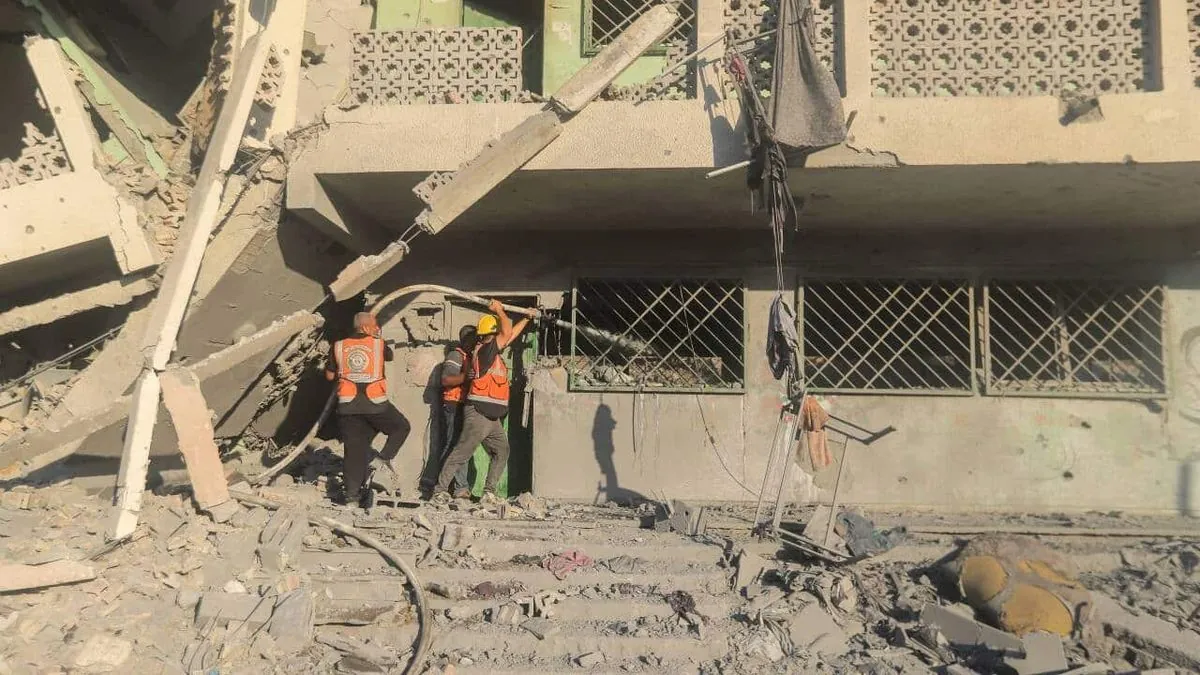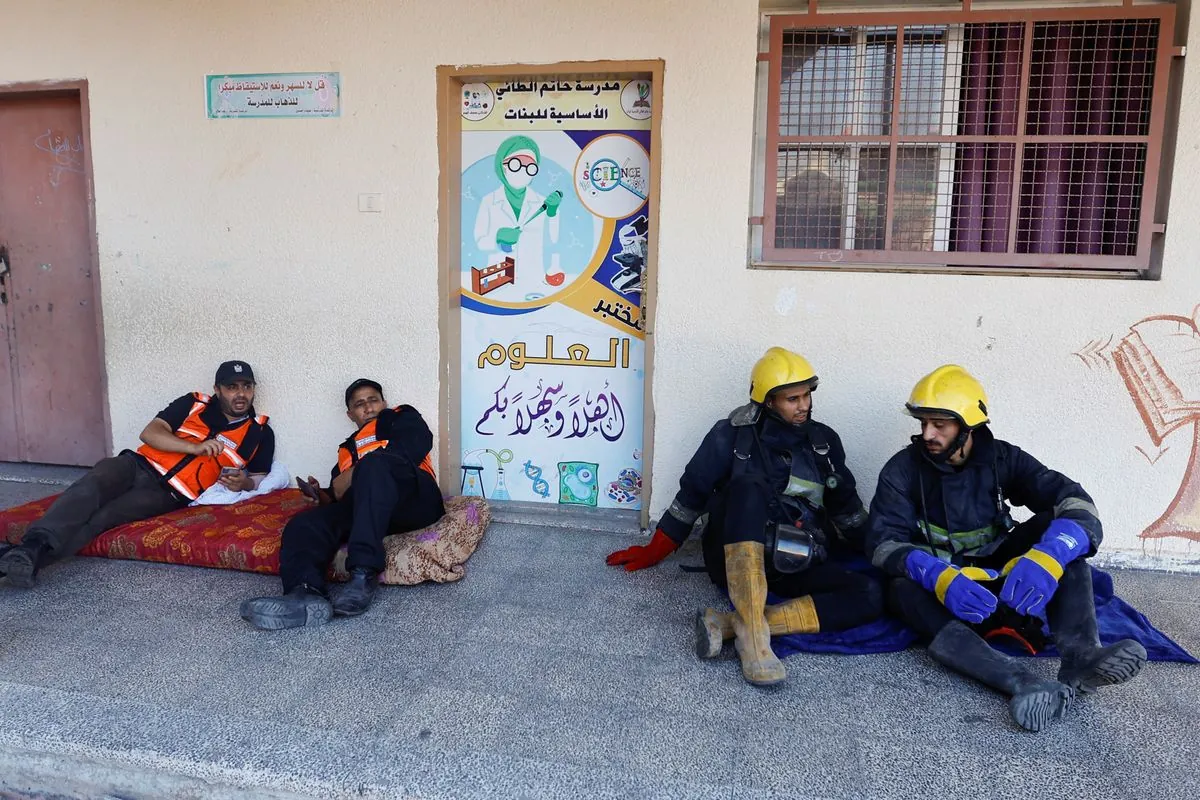White House Voices Concern Over Gaza School Strike as Conflict Persists
US expresses deep concern over Israeli airstrike on Gaza school compound. International community condemns attack as civilian casualties mount in ongoing conflict. Ceasefire efforts continue amid regional tensions.

The White House has expressed "deep concern" regarding an Israeli airstrike on a school compound in Gaza City that reportedly resulted in significant civilian casualties. This incident, occurring approximately one year ago, has drawn widespread condemnation from various international entities.
According to local civil defense officials, the strike on the school compound, which was housing displaced Palestinian families, claimed the lives of around 100 individuals. The Gaza Civil Emergency Service, known for its reliable reporting of casualty figures, provided this estimate. In response, Israeli authorities stated that approximately 20 militants were operating within the compound at the time of the strike.
The United States, while acknowledging its ongoing military support for Israel, emphasized the need to minimize harm to civilians. A White House statement noted, "We know Hamas has been using schools as locations to gather and operate out of, but we have also said repeatedly and consistently that Israel must take measures to minimize civilian harm."

This incident highlights the complex nature of the conflict in Gaza, where civilian infrastructure often becomes entangled in military operations. The Gaza Strip, one of the most densely populated areas globally with about 5,500 people per square kilometer, faces significant challenges in protecting its civilian population during times of conflict.
The international community, including several Arab states, Turkey, the United Kingdom, and the European Union's foreign policy chief, has joined in condemning the attack. Josep Borrell, the EU foreign policy chief, expressed horror at the images from the school, while British Foreign Minister David Lammy stated he was "appalled" by the strike.
"We are deeply concerned about reports of civilian casualties in Gaza following a strike by the Israel Defense Forces on a compound that included a school."
The ongoing conflict, which began approximately 10 months ago, has had devastating consequences for Gaza's population of 2.3 million. According to the health ministry in the Hamas-governed enclave, nearly 40,000 Palestinians have lost their lives, and almost the entire population has been displaced. This has led to a severe hunger crisis and allegations of genocide at the World Court, which Israel denies.
It's worth noting that over 70% of Gaza's population are registered refugees, and the territory has been under an Israeli-Egyptian blockade since 2007. The conflict has exacerbated existing challenges, including limited access to clean water, with 95% of Gaza's water supply considered contaminated and unfit for human consumption.
The current phase of hostilities was triggered on October 7, 2023, when Hamas launched an attack on Israel, resulting in 1,200 deaths and the taking of approximately 250 hostages, according to Israeli reports.
Efforts to broker a ceasefire have been ongoing, with President Joe Biden proposing a three-phase plan on May 31, 2024. However, negotiations have faced numerous obstacles. The situation is further complicated by recent events in the region, including the killings of Hamas leader Ismail Haniyeh in Iran and Hezbollah military commander Fuad Shukr in Beirut, which have heightened the risk of a broader Middle East conflict.
As the international community continues to call for de-escalation and a peaceful resolution, the humanitarian situation in Gaza remains dire. With one of the world's highest unemployment rates and an average age of 18, the long-term impacts of this conflict on Gaza's young population are of significant concern.


































